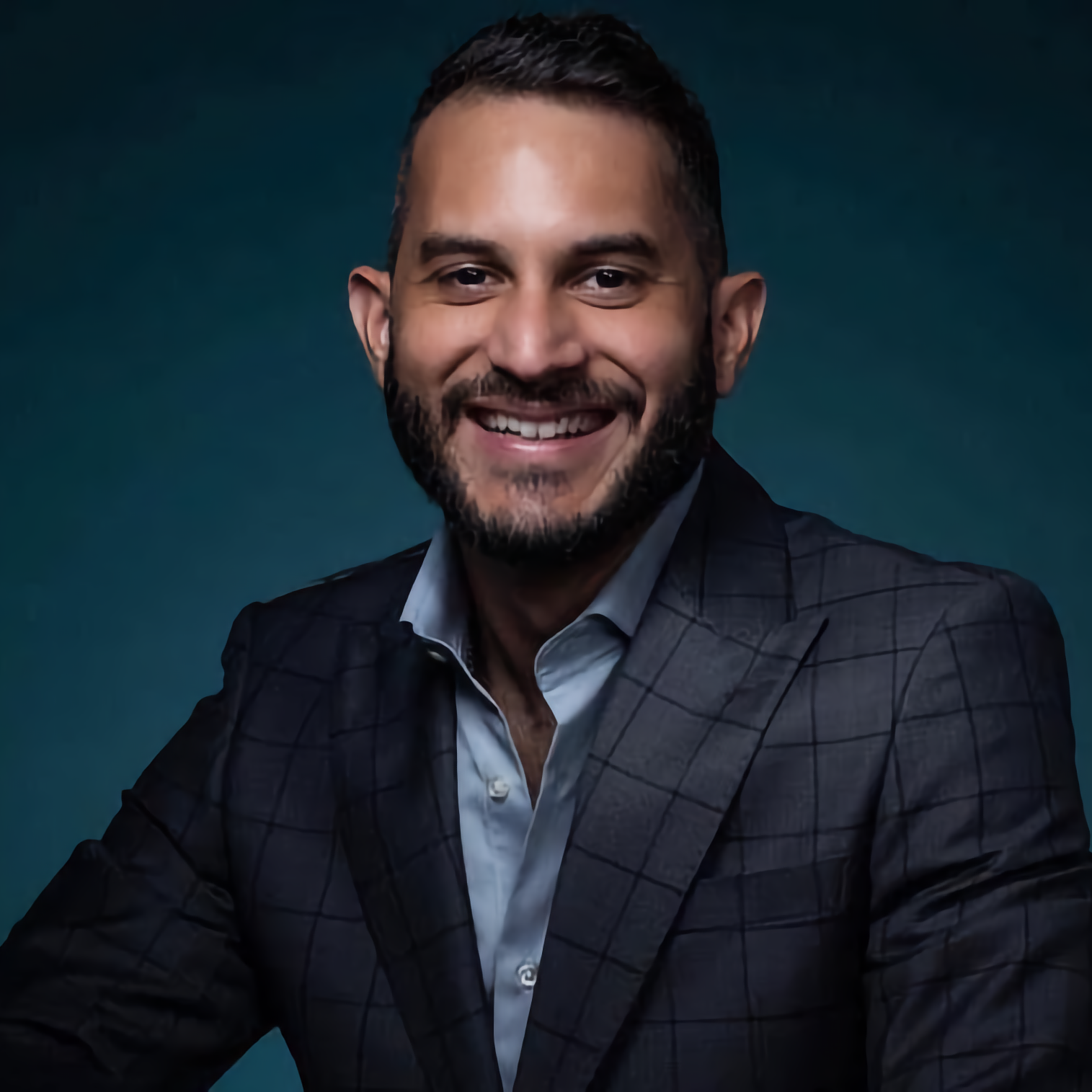Outside the Comfort-Zone
How reporting has helped mold my mixed identity
Editor’s note: This essay is part of the “Authentic Self” series, which is part of the initiative "More LGBTQIA+ Latinx in Newsrooms." It aims to share stories and underscore the importance of hiring more queer reporters in newsrooms. The series is a project of the National Association of Hispanic Journalists’ LGBTQIA+ Committee, palabra and GLAAD.
Growing up in a protestant congregation during my childhood, my view of the church and the Christian faith during my time in college was not as positive. I had grown distant from my faith as I began to come out and explore my sexuality, mostly because I was under the impression that being gay and Christian was not synonymous.
In 2021, I began an investigative piece for my college publication on how up-keeping and renovations on local religious buildings have gone down and under-resourced. Given their limited resources, churches had been reimagining what physical workshop space would look like.
In the months before starting this project, I felt nervous about interviewing church leaders. I feared facing homophobia due to my LGBTQIA+ identity. However, attending the United Church of Chapel Hill changed my perception.
‘The inclusive newsroom I was writing for allowed me to bring my authentic self, offering a unique perspective on the complex intersection of identity and faith.’
Despite typical teachings in religion, almost half (46.7%) of LGBTQIA+ adults are religious, according to a 2020 report from the UCLA School of Law’s Williams Institute. And although a large number of queer people identify as religious, it has been more or less taboo to discuss sexuality outside of being heterosexual. Among young adults, like me, ages 18-24, only 38.5% identify as religious.
At the church, Pastor Cameron Barr welcomed LGBTQIA+ community members with open arms. Several of the church’s clergy members also identified as part of the LGBTQIA+ community. Instead of facing backlash for being a queer Latino person, the pastor helped me and my colleagues tell this story.
I sat down one-on-one with the pastor, who was a married gay man and a practicing Christian, leading a congregation of other Christians. This pastor casually referred to his husband during the interview and we were sitting among LGBTQIA+ rainbow flags within a church building.
I was shocked to come into a worship space that accepted me and supported my sexuality. After leaving that church that day, I found a new sense of courage and strength. For the first time, I felt like I could co-exist with both my sexuality and my faith; a feeling I have so long yearned for.
Julian Berger at the NBC News newsroom in September 2023. Photo courtesy of Alexandra Turcios-Cruz
Visiting this church allowed me to embrace being gay and religious. This reporting assignment allowed me to recognize that my sexuality and my faith could indeed coexist. It began a process of me realizing that not all religious people are homophobic and that I indeed could practice Christianity while also not conforming to traditional views on heterosexuality.
Reflecting on the profound impact of that reporting assignment, I am reminded of the transformative power of stepping beyond one's comfort zone. The journey was not just about unraveling the layers of my own identity but also about challenging preconceived notions and stereotypes that had woven themselves into my understanding of sexuality and the church.
On a more general level, by increasing the presence of Latinx and queer reporters, media organizations can break down stereotypes, dispel misconceptions, and deliver more nuanced, accurate portrayals of diverse communities, like queer people that identify as religious.
—
Julian Berger works as a production assistant for NBC News Daily. He previously interned as a prime-time intern for CNN and as a bilingual reporter for La Noticia. He earned a bachelor's degree in journalism and Hispanic studies from the University of North Carolina at Chapel Hill. He has been a member of NAHJ since 2018, where he co-founded the NAHJ student chapter at UNC-Chapel Hill in 2020, and is a member of the newly created NAHJ LGBTQIA+ Committee.
Luis Joel Méndez González reports on climate change and disaster recovery for the Center for Investigative Journalism through Report for America since 2022. He is an experienced data-driven and multimedia reporter. Méndez González holds a Masters Degree in Data Visualization and Information Design, and sits on NAHJ´s Board of Directors as General At-Large Officer. He´s also co-chair of the LGBTQIA+ Committee.
Tat Bellamy Walker is the communities reporter for the Seattle Times, where he reports on diverse groups throughout the Pacific Northwest. Last year, he reported for NBC News' diversity verticals (NBC Latino, BLK, OUT and Asian America). In 2021, he was named a Poynter-Koch Media and Journalism Fellow, where he joined more than 50 local journalists from newsrooms across the US. His work has appeared in the Daily Beast, Business Insider and CNN.
David Cordero Mercado is a multimedia and investigative journalist. He has reported on hate crimes in Puerto Rico as a reporter for El Nuevo Día, the biggest newspaper on the island. He earned a master's degree in Communications with an emphasis in Journalism Innovation from Syracuse University in New York, and a bachelor's degree in Information and Journalism from the School of Communication of the University of Puerto Rico, Río Piedras Campus, as well as a second concentration in Political Science. He is also the Region 1 Director on the Board of Directors of the National Association of Hispanic Journalists.








